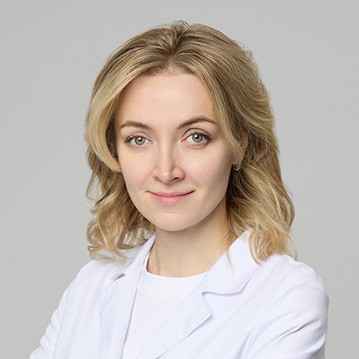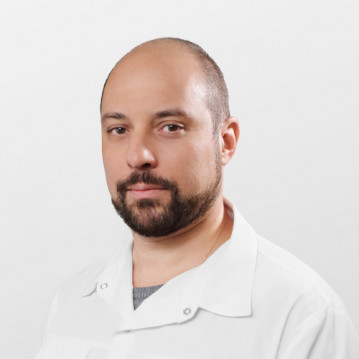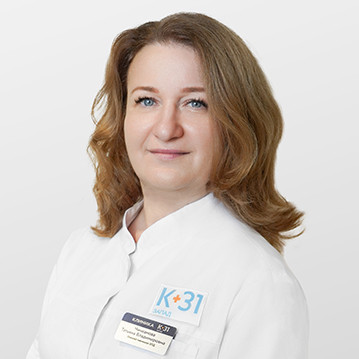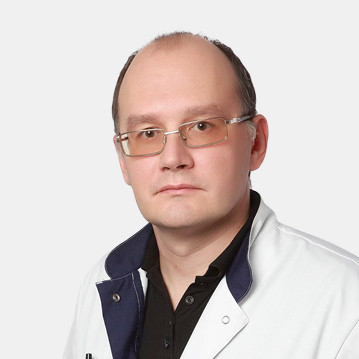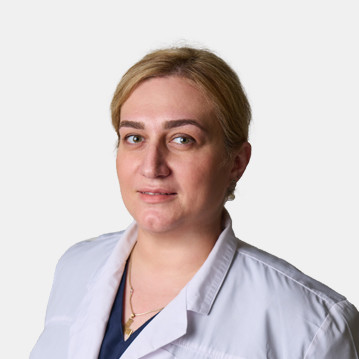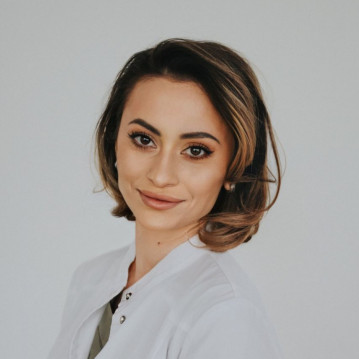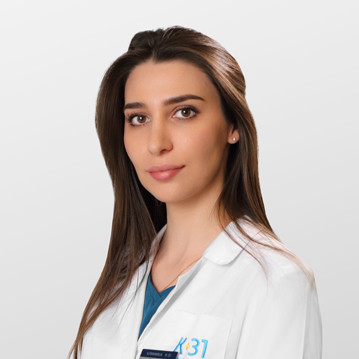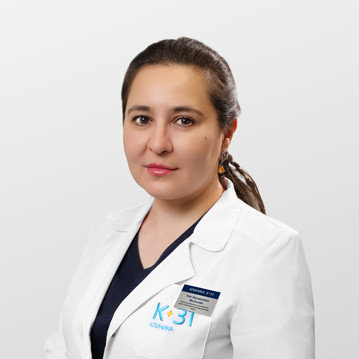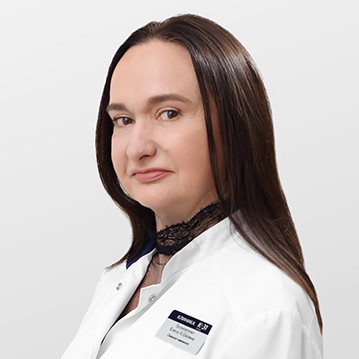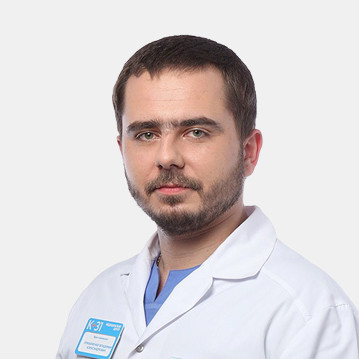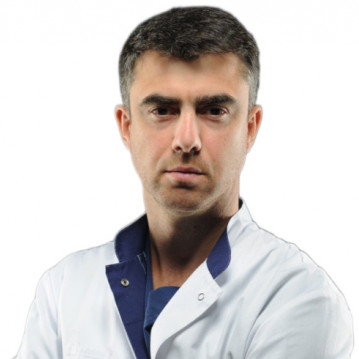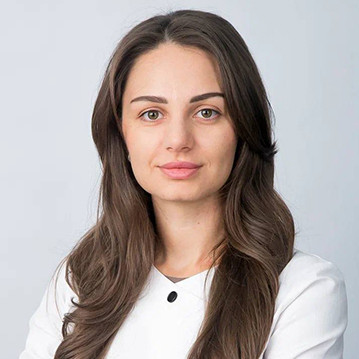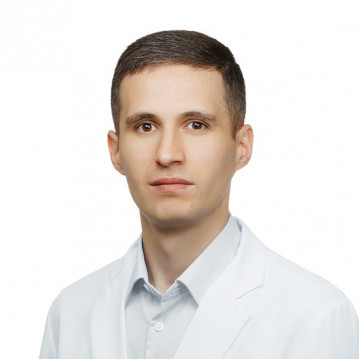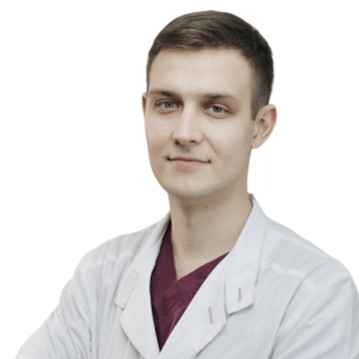Features of K+31 Clinic
The mammologists of the K+31 clinic are unique specialists who are proficient in all methods of breast examination.
Appointment of only those studies and procedures that are necessary for a woman, in accordance with international standards.
Mammologist's answers to popular questions
1. How often should I be screened for breast cancer?
The peak of oncological diseases of the mammary glands occurs at the age of 40 years. It is at this time that women should pay special attention to their health. It is recommended to have a mammogram once a year. This is the best way to diagnose breast cancer.
But, if a woman is at risk, it is worth being examined starting from the age of 30. This applies when:
- There are women in the family who have been diagnosed with cancer of the breast, uterus, etc.
- Genetic mutations have been identified that increase the risk of developing cancer.
- The patient was undergoing radiation therapy.
For women under 40, it is enough to do a routine ultrasound of the mammary glands.
2. What should I do if there is a white or yellow discharge from the nipple when pressed?
Such a sign may indicate a bacterial disease, a hormonal imbalance, or a tumor. It is worth signing up for a consultation with a mammologist and doing an ultrasound of the mammary glands.
3. There was a seal in the chest, which hurts when pressed. What should be done about it and how dangerous is it?
The first step is to make an appointment with a specialist and do an ultrasound. In most cases, the seal can cause a benign tumor due to hormonal imbalance.
4. Is fibroadenoma dangerous and how is it treated?
Fibroadenoma is a benign neoplasm that is not accompanied by pain and inflammation. The likelihood that it will develop into a malignant tumor is minimal. No drugs are used to treat fibroadenoma. The only option is surgery.
5. On what day of the cycle is it recommended to sign up for an examination with a mammologist?
The optimal time for a scheduled examination is 5-12 days of the cycle. But, if strong seals or pain were found during self-diagnosis of the breast, it is worth signing up for a consultation as soon as possible.
6. Did an ultrasound of the mammary glands, and was diagnosed with fibroadenoma and simple cysts. The treatment was given. Is it possible to go to the gym with such a diagnosis?
The presence of cysts and fibroadenoma are not a contraindication to physical activity. The main thing is to follow the doctor's instructions and take all the necessary medications.
7. A growth appeared near the nipple, which did not bother me for a long time. Now this papilloma is bleeding, while the chest hurts if you press it. Which specialist should be consulted?
With neoplasms on the chest, regardless of whether they bother you or not, you should make an appointment with a mammologist as soon as possible. In this case, it is worth contacting an oncologist. He will conduct the necessary examination and be able to give specific recommendations.
8. I have been breastfeeding for 3 months, there was a seal and pain in my right breast. Did the doctor diagnose mastopathy? How scary is this and can it be cured without completing GW?
The main reason for the occurrence of mastopathy is a cardinal change in the hormonal background. This is a disease that is associated with a structural change in the tissues of the mammary glands. It is necessary to treat it, because without timely treatment, it can develop into oncology.
As a rule, for the treatment of mastopathy, it is enough to adhere to a certain diet and take medications that normalize hormonal levels. If you turn to a specialist in time and start complex therapy, you won’t have to stop breastfeeding.
9. There is pain in the chest if you touch it or accidentally touch it. However, there are no other changes. Should I immediately run to the doctor or is it better to start observing? What could be the reasons for this?
Pain can appear for a variety of reasons, ranging from symptoms of premenstrual syndrome to serious inflammatory processes. This issue cannot be resolved online. If the pain appeared suddenly and does not depend on a certain period of the cycle, it is still worth contacting a mammologist. At the consultation, the specialist will conduct the necessary examinations and will be able to give an opinion.
10. There were signs of mastitis, but I have not breastfeed for a long time. Which doctor should be consulted for diagnosis and treatment?
Mastitis is an inflammatory disease of the mammary gland that develops against the background of an infection. It can be diagnosed not only in lactating women, but also in non-lactating or even men. Both the gynecologist and the mammologist are engaged in the diagnosis and subsequent treatment of mastitis. To do this, the patient will have to do an ultrasound of the mammary glands, pass a general blood and urine test.
11. I stopped breastfeeding my baby over a year ago. But until now, if you press on the nipple, a transparent discharge similar to colostrum appears. Is this normal or should I go to the doctor?
The appearance of secretions up to 3 years after the completion of HB is the norm. If there are no other symptoms, you can just watch. But, if other symptoms are added to this, for example, pain or induration, or discharge not related to feeding in the past, it is worth making an appointment with a doctor.
12. Reddened skin on the chest. There are no more complaints. Which specialist should I contact to solve this problem?
Changes in skin color on the mammary glands can appear for various reasons. If there are no other symptoms, you should first consult a dermatologist, perhaps it's just an allergic reaction or dermatitis. But, if an increase in body temperature is added to the redness, pain, other inflammatory processes may develop. A mammologist can make a diagnosis by conducting the necessary examination (mammography, ultrasound, blood test).
13. On a planned ultrasound, cysts were found in the chest. I didn't even know I had this problem. How dangerous is it and is it possible to do without surgical intervention?
Breast cysts are cavities filled with fluid. Most often, they do not manifest themselves in any way and are diagnosed during an ultrasound scan. By themselves, they do not cause any discomfort, but later there is a risk that the neoplasm will develop into a malignant one.
Treatment depends on the type of cyst. For small cases, conservative treatment using various drugs may be sufficient. The help of a surgeon can be indicated for multiple cysts, their large sizes or frequent recurrences. In any case, the most effective treatment plan is made by a specialist based on diagnostic examinations.
14. I have had sunken nipples all my life. Aesthetically, it's not very attractive. Is it possible to somehow correct the situation without resorting to the help of a surgeon?
To understand whether it is possible to change the shape of the nipple without surgery, it is important to determine the degree of its severity. In some cases, you can get by with special shapers and gymnastics. Surgical correction is used for significant changes. This method is fast and effective, but further leads to the impossibility of lactation.
An inverted nipple is not always just an individual feature. It can cause pathological changes in the mammary glands. If before that the breast was of a normal shape, but the nipple began to retract, you should consult a doctor as soon as possible.
15. Is self-diagnosis of the mammary glands necessary? And if so, how often should this be done?
Self-diagnosis can help in the early detection of pathological changes in the breast. You need to do it every month on the 5-11th day of the cycle. The chest should be the same size, symmetrical. There should not be any seals or secretions. If any warning signs appear, you should immediately contact a mammologist.
16. Pregnancy 8 weeks. The doctor diagnosed mastopathy. Do I need to treat it now and how dangerous is the disease for me and the child?
You should not be afraid of mastopathy during pregnancy. It does not affect the fetus in any way and cannot cause problems with gestation. Moreover, during pregnancy, due to hormonal changes, it can completely disappear. In any case, it is recommended to constantly be observed by a doctor.
Mastopathy is treated with the use of hormonal drugs and homeopathic remedies. But for pregnant women, this option is not suitable. For them, the use of ointments or compresses is considered more preferable. Lifestyle changes (good sleep, a balanced diet, giving up bad habits) can also help.
17. Do I need to undergo breast ultrasound more often during breastfeeding?
There is no need for frequent ultrasound of the mammary glands with GV. It is enough to pass a scheduled inspection. But, if cystic changes or other pathologies were diagnosed before pregnancy, an additional examination may be prescribed by the attending physician.
18. Worried about small breasts. Is it possible to change its size without resorting to surgical intervention? Are there any creams or ointments that can help? There are so many ads around.
No, no cream can help increase breasts. But at the same time, you should not be afraid of the operation. Modern plastic surgery allows you to perform the procedure with minimal tissue damage. Also, the increase does not affect the possibility of breastfeeding in the future.
19. Is the presence of a cyst a contraindication to visiting a solarium?
It is not recommended to abuse the solarium or prolonged exposure to the sun if mastopathy has been diagnosed. This can lead to the fact that the neoplasm develops into a malignant one.
20. Is it always necessary to immediately make an appointment with a mammologist if you have questions? Is there an online consultation option?
Yes, this option is possible. You can make an online appointment after an ultrasound or mammography to get answers to all your questions, as well as to adjust the treatment plan. But, if there are complaints and signs of pathological changes, it is still worth signing up for a face-to-face consultation with a specialist.

